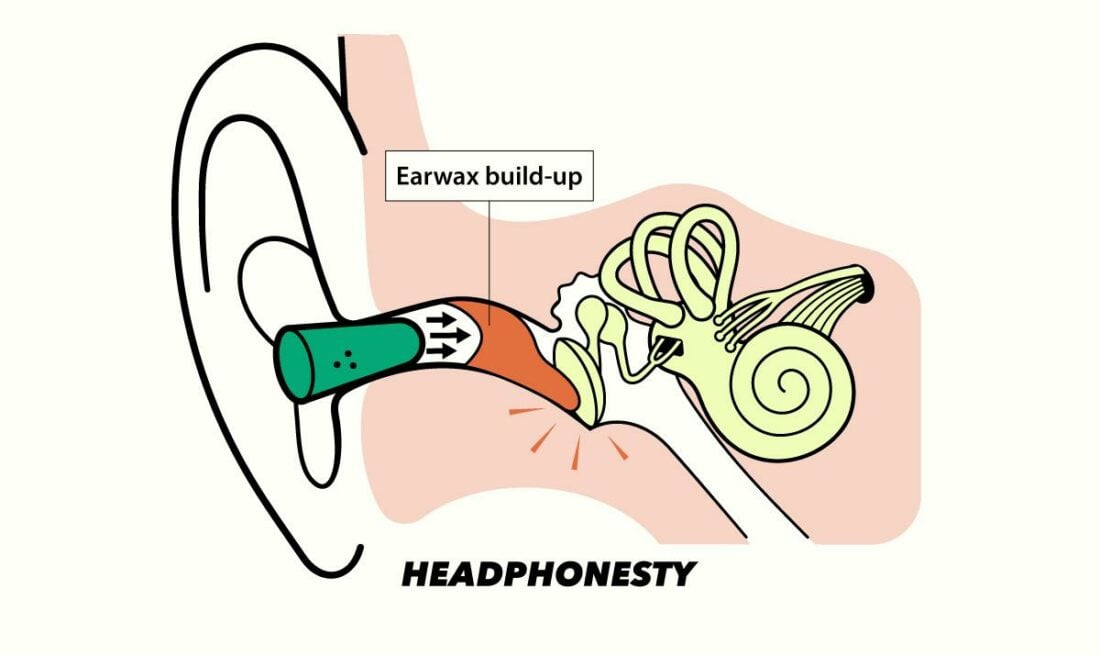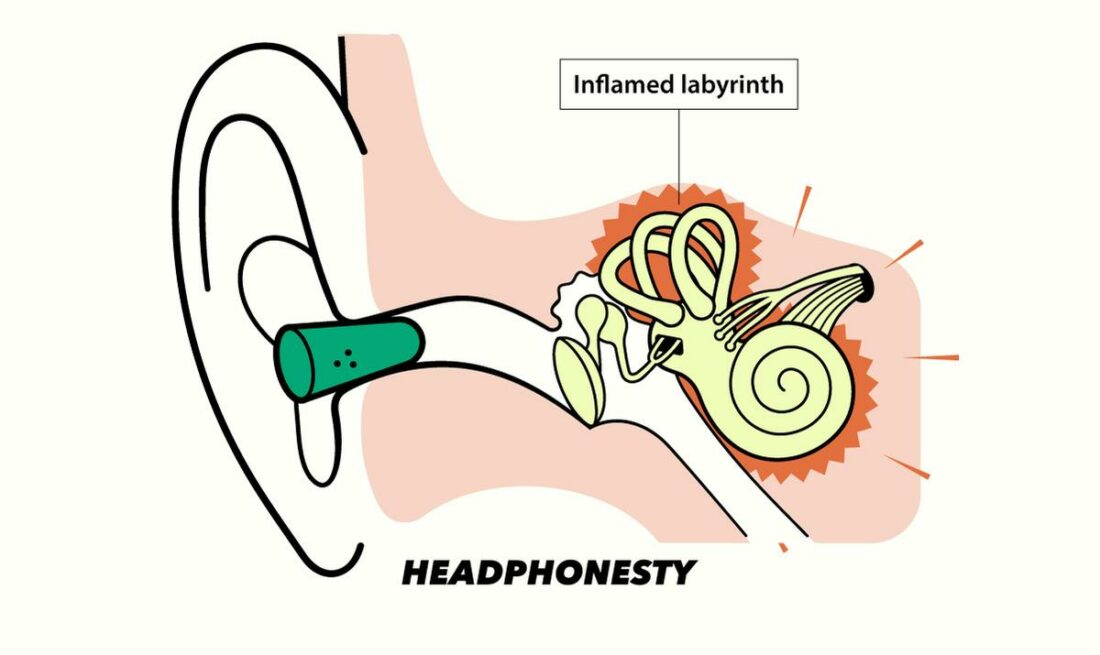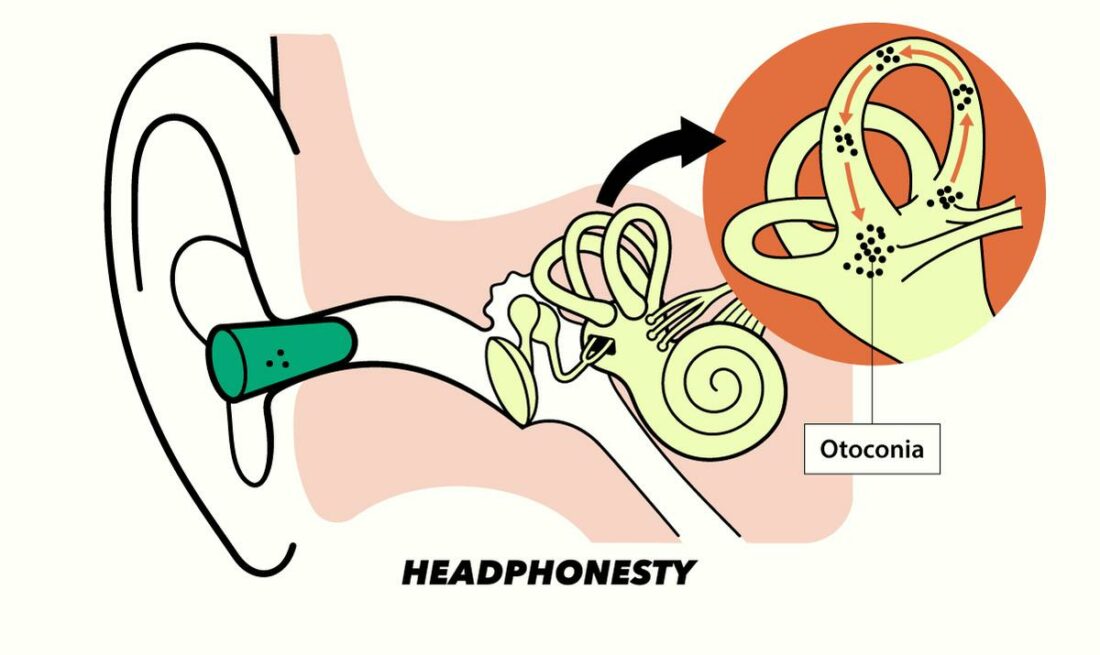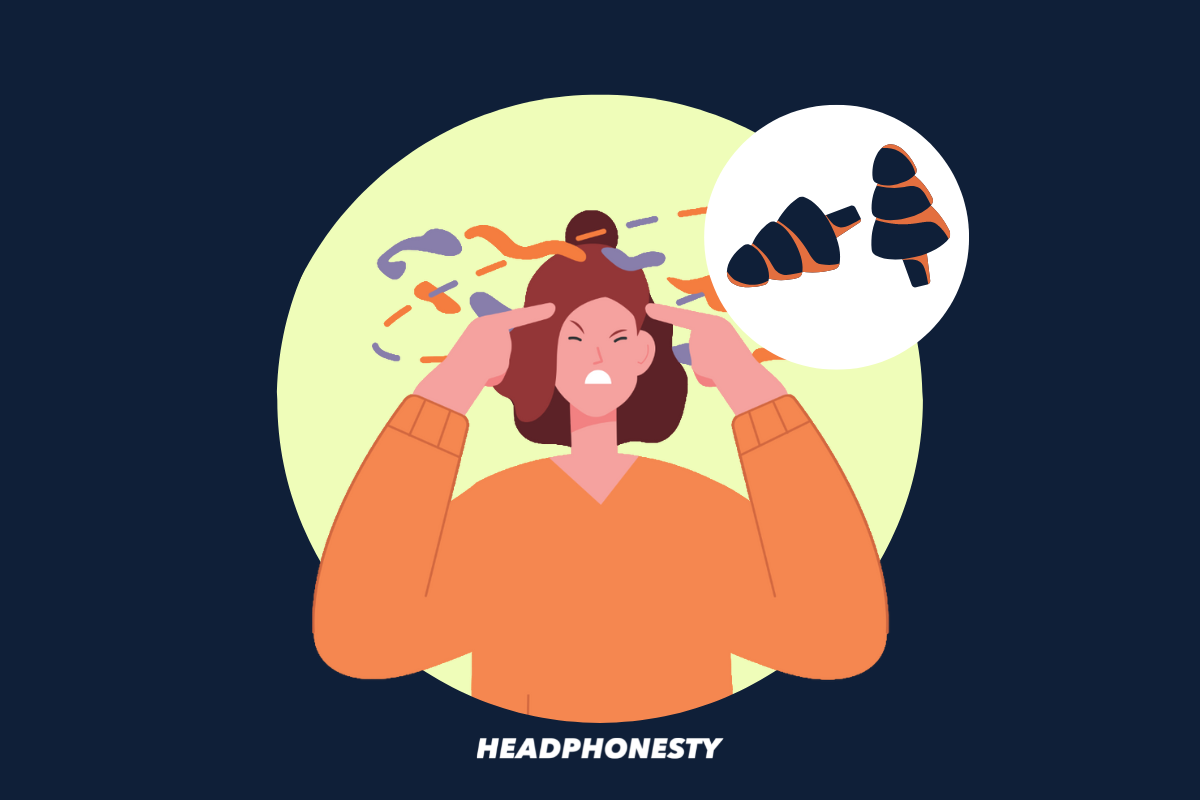We discuss all you need to know about whether or not earplugs can cause vertigo and how to avoid this condition.
You probably dismissed the first time you felt lightheaded, dizzy, or had ringing in your ears while wearing earplugs because you assumed it was just from wearing them for hours. But constant vertigo when wearing earplugs is turning from frustration to fear.
Unfortunately, giving up on wearing earplugs would mean losing your peace and exposing yourself to noise-induced dangers. As a result, you feel as though you have no choice but to decide which risk you’d rather take.
Dive in as we answer your most bugging questions on the relevance of earplugs and vertigo and the best practices to avoid the same if you use earplugs regularly.
3 Ways Earplugs Can Cause Vertigo
If you use earplugs often and recently started experiencing vertigo, you’re probably wondering if your earplugs are responsible for the condition.
First of all, you can’t get vertigo directly from using earplugs.
It is with using your earplugs excessively or in the wrong way that could result in specific conditions that can cause vertigo.
Here are three ear conditions resulting from improper use of earplugs that can lead to vertigo:
- Earplugs can cause earwax build-up
- Earplugs can cause labyrinthitis
- Earplugs can cause Benign Paroxysmal Positional Vertigo (BPPV)
1. Earplugs can cause earwax build-up

Our ears produce a waxy oil called cerumen – otherwise called earwax. Earwax safeguards our ears from dust, microorganisms, and irritation from water.
When earwax gets excessive, it filters out of the ear canal into the ear opening and gets washed away.
However, in some instances, excessive earwax produced by the ear glands fails to make its way out of the ear, hardens up, and eventually blocks the ear.
One of the reasons earplugs are bad for ears is that they can contribute to earwax build-up.
Using earplugs often prevents earwax from filtering out of your ear, leading to excessive build-up and impaction.
This impacted earwax can ultimately lead to vertigo in the following ways:
- As you use your earplugs, they can push the impacted earwax further into the ear and against the eardrums or tympanic membrane, resulting in nausea or a dizzying sensation typical of vertigo.
- Impacted earwax can lead to a host of bacterial infections in your ear. One symptom you’ll experience due to these infections is vertigo.
2. Earplugs can cause labyrinthitis

Labyrinthitis is an inner ear infection involving the labyrinth’s inflammation due to exposure to a viral illness such as the flu or cold.
One of the most common symptoms of labyrinthitis is vertigo.
This happens because the labyrinth is the home of the body’s cochlear and vestibular systems.
When the labyrinth suffers any form of damage (such as an infection like labyrinthitis), it could affect the vestibular system, thus making it difficult for the said system to send accurate signals to the brain.
In turn, you may experience dizziness and loss of balance – two common symptoms of vertigo.
So, where do earplugs come in? Well, using earplugs can cause labyrinthitis in several ways:
- Earplugs can cause bacterial growth in the ear, leading to an infection. Unfortunately, bacterial infection in the middle ear is a common cause of labyrinthitis.
- Some earplugs, such as foam earplugs, are made from hypoallergenic materials like UF (urea formaldehyde) foam, silicone, or PVC (polyvinyl chloride) foam. Therefore, you may experience allergies while using them. Allergies are also causative agents of labyrinthitis.
3. Earplugs can cause Benign Paroxysmal Positional Vertigo (BPPV)

Benign Paroxysmal Positional Vertigo (BPPV) typically involves brief spells of mild to intense dizziness when you change your head’s position (tip it down, lie down, or turn over in bed). It’s one of the most common causes of vertigo.
BPPV occurs when the calcium crystals in your inner ear – otherwise referred to as otoconia – leave their position in the utricle and flow freely to other regions of the inner ear, such as the semicircular canals (SCC) in the vestibular system, which senses changes in your head’s rotation.
When you move your head, these crystals stimulate the balance nerve resulting in vertigo.
People who sleep with their earplugs daily are typically more susceptible to BPPV since wearing earplugs frequently can lead to impacted earwax and ear infections.
If you’ve been wondering whether your earplugs are safe for use while sleeping, we hope you’ve got your answer. The risk of BPPV and vertigo means earplugs are dangerous to use constantly as sleeping aids.
How to Prevent Earplugs From Causing Vertigo
Are earplugs bad for your ears because of the risk of vertigo? Not exactly. Earplugs are still quite beneficial to help you cope with loud noises.
Besides, with proper use and care for your earplugs, you can significantly reduce the risk of vertigo and other ear infections.
Here are some ways to prevent vertigo if you use earplugs regularly:
Avoid frequent use
Consistently using earplugs (especially sleeping with them daily) can lead to impacted earwax, which puts you at risk of bacterial infection and vertigo.
The more you use earplugs as sleeping aids, the more you push the wax in your ears against the eardrums or tympanic membrane and prevent it from draining.
That said, earplugs aren’t inherently harmful to sleep in. Studies have, in fact, shown the effects of earplugs in improving sleep quality.
It is, however, advisable to go one or two nights a week without earplugs to allow your ears to drain earwax. That way, you can maximize earplug use while also ensuring ear health!
Use clean earplugs
Dirty earplugs can cause ear infections and put you at risk of vertigo. As such, it’s best to keep your earplugs as clean as possible to avoid infections.
So make sure to wash your earplugs often to get rid of wax on their surfaces, and discard them once they lose their efficiency and quality.
Avoid earplugs you are allergic to
Foam and silicone earplugs may be bad for your ears if you notice that they cause allergic reactions whenever you use them.
Some users have reported experiencing an itchy rash or discomfort from using latex, rubber, foam, or silicone earplugs.
These earplugs are often made from hypoallergenic materials (PVC/UF foam and silicone) that may trigger allergies in people with sensitive skin.
If that’s the case, it’s best to discard them immediately for other safer choices.
Conclusion
If you’re hearing about the risk of vertigo from using earplugs for the first time, you may be tempted to dump your favorite earplugs as a safety measure.
However, while excessive and improper use of earplugs can cause vertigo and hearing complications, it’s possible to avoid these conditions by using them less frequently and ensuring they are always clean.
Make sure to follow the safety measures discussed in this article, and you’re all set to enjoy your earplugs’ unrivaled hearing protection without worrying about any health scares.
Have you ever experienced vertigo from using earplugs? What about allergic reactions to foam and silicone earplugs? Do you think earplugs are unsafe for hearing because of these health risks? Let us know in the comments.

Hi,
I experience all of the symptoms you describe.
I also think there is a question of sound pressure.
I would suggest to put down the volume, use earphones with multiple vents or open designs.
And regarding headphones it’s almost the same thing, open back are more comfy with these symptoms IMO.
Thanks so much. Article very enlightening.
Experienced this today, intense vertigo when I woke up, and yes, I sleep with earplugs, but no more after reading this. Thank you for this post because if it had not been for it, I would have been wondering what on earth happened to me.
Brandon, if you think you may have bppv, look up the epley &/or Semont maneuver. There are tutorials to do these at home. Very simple. It can help get rid of it. It worked a few years ago for me, now I’m getting different, milder dizziness that I hope isn’t something more serious, I am traveling in less than a week.
I do sometimes get vertigo but since starting to wear earplugs ( because of my husbands snoring) I wake up feeling dizzy . I have now stopped wearing them .